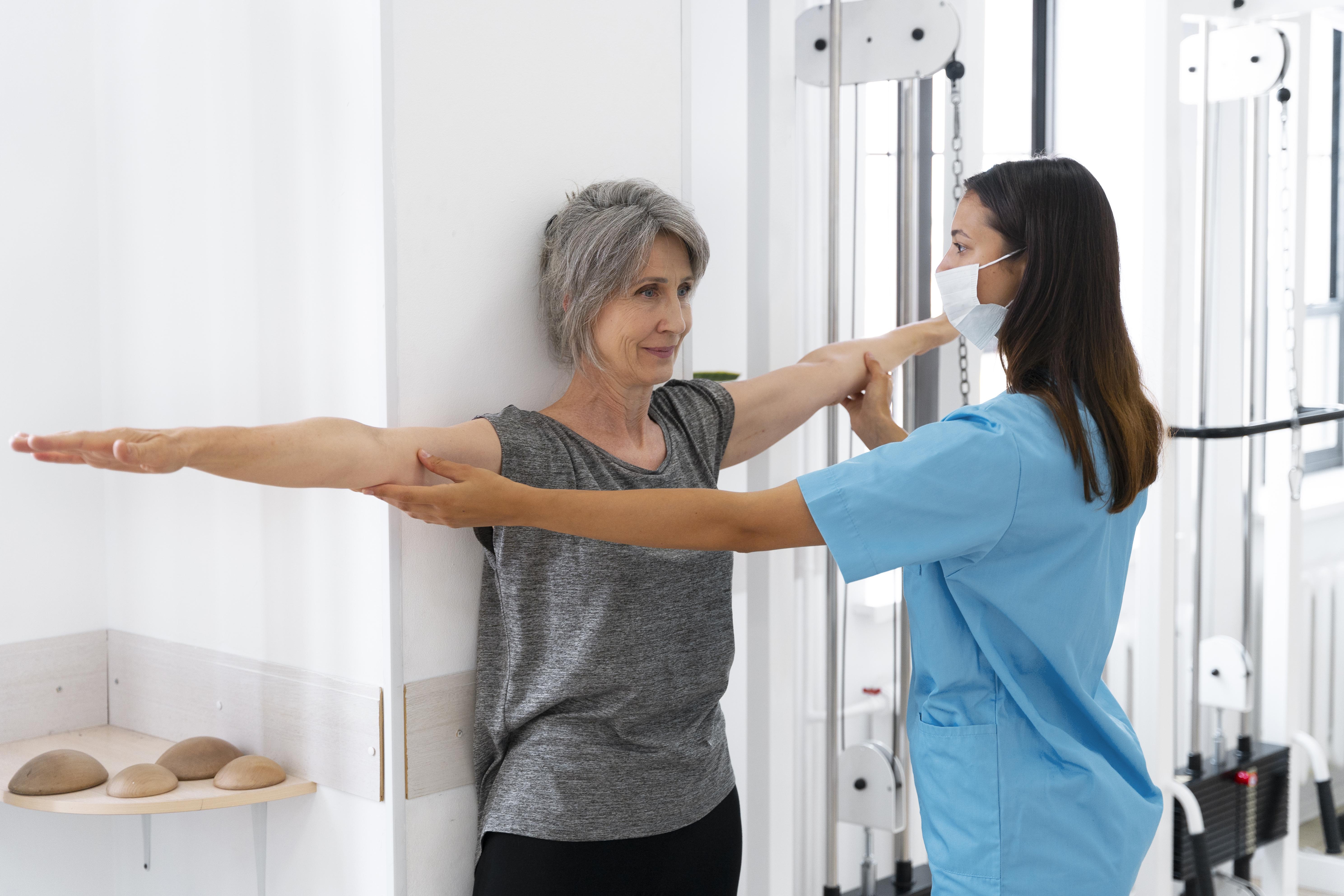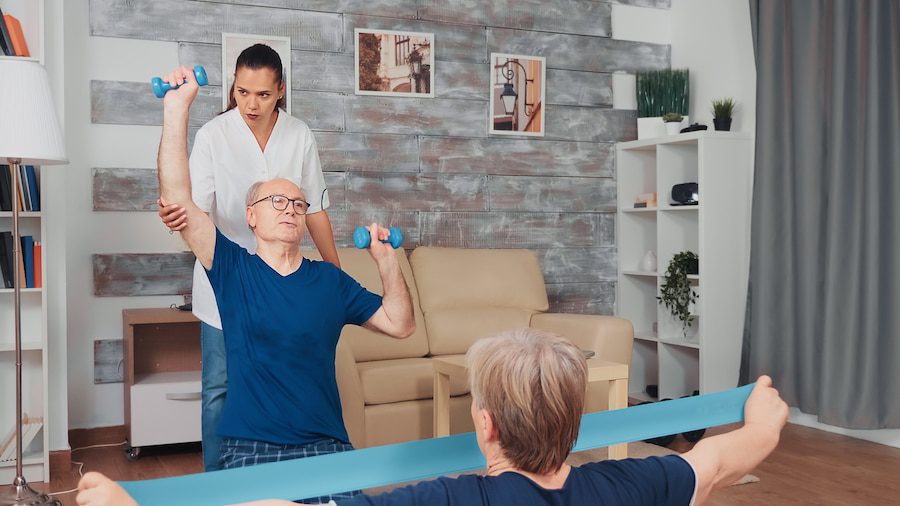There is robust evidence that Physiotherapy input improves the outcomes for the elderly population especially with stroke, falls, fractures, and frailty. With aging population in UK, Physiotherapists have an important role to play in improvement, maintenance, and health promotion for elderly population. Elderly patients have co-morbidities which impact there day to day life. The benefits of Physiotherapist-led exercise programmes in the community are well known and researched to establish the effectiveness.
The blog gives you information about benefits of elderly physio services.
Why would an Elderly Person Need a Physiotherapist?
Elderly Physiotherapists are specialists who are trained in musculoskeletal, neurologoical, orthopaedics, cardiovascular conditions, and geriatrics. They treat chronic pain, stiffness, reduced mobility, stamina, falls, arthritis, and fractures etc. The reasons why an elderly patients may need a physio are described below:
Firstly, the muscles become less elastic as you age, meaning they don’t bounce back as quickly after being stretched or contracted. This can lead to decreased joint movement and flexibility, making it harder to perform everyday activities of daily living like getting in and out of bed, doing stairs or reaching for things on high shelves.
Secondly, as you age, your bones lose density and strength as well as storing more body fat. This can lead to osteoporosis when the bone becomes weak and brittle. Osteoporosis can cause fractures thus, resulting in surgeries therefore, reducing the mobility and increasing the need for carers.
Thirdly, elderly patients are more susceptible to pulmonary and cardiovascular illnesses which can have huge impact on stamina, confidence, and the ability to live independently
What conditions can Elderly Physiotherapists treat?
Physiotherapy has been shown to improve function and quality of life for seniors. Elderly physio can help with a variety of issues, including:
● Musculoskeletal problems, such as arthritis and back pain
● Neurological problems like stroke, parkinson’s disease and multiple sclerosis
● Environmental issues which can impact safety and result in falls
● Psychological problems, such as depression, anxiety or reduced confidence
● Orthopaedic problems like fractures, Joint replacement surgeries
● Long-term conditions like diabetes and cancer which affect stamina and mobility
● Age-related reduced balance and stability
● Dementia and its impact on living independently
● Specialist conditions like pulmonary and cardiac rehabilitation
Benefits of Physiotherapy for the Elderly Person
As the population ages, it is essential to find a physiotherapist who is experienced in treating elderly patients. Following are the beneficial effects of Physiotherapy for elderly :
● Reducing muscle stiffness: Elderly patients may have difficulty moving their muscles because of decreased flexibility. This can make it difficult to do exercises correctly, which in turn can lead to muscular stiffness and pain further affecting the mobility
● Improving flexibility: As muscles become stiffer, they lose their ability to move freely and lengthen. This can lead to problems with joint mobility, balance, and coordination. Physiotherapists can develop exercise plans to address these problems effectively.
● Increasing energy levels: Elderly patients often experience reduced energy levels due to age-related illnesses and reduced circulation. This reduces the stamina therefore, making it difficult to lead an active life resulting in sedentary behaviours. Physiotherapy input can improve exercise tolerance and ability to engage in challenging physical activities.
● Treating chronic pain: Elderly patients have reduced pain thresholds due to diminished sensations, degenerative conditions like arthritis etc. Physiotherapists can assist in managing chronic pain which can have positive effect on the mobility and function
● Stability and balance: Balance and stability are affected because of numerous problems like reduced sensation, polypharmacy, decreased muscle strength and poor postural control. Physiotherapists are skilled in assessment and treatment of stability issues by providing balance exercises to improve balance and stability
● Injury prevention: Physiotherapists can assess environmental risks and advice the adaptations to make the environment safe for the elderly therefore, reducing the risk of falls and fractures. They can also provide training to use appropriate aids to assist in activities of daily living in addition to improving awareness to recognise the risks.
● Maintaining independent living: An older person’s ability to live independently is affected by multitude conditions. Physiotherapists work on the muscle strength, flexibility, stamina, reducing pain, confidence building, and use of appropriate walking aids which greatly enhances the ability to live independently. Timely Physio input following hospital discharge also speeds up the recovery period following illness and injury therefore reducing the need of expensive care packages.
● Improves mood and promotes well being: One of the benefits of exercise is improving cognition and mood which helps elderly diagnosed with Dementia and other long-term conditions.
Conclusion
Elderly Physio input enhances quality of living and reduces the risk of loosing independence by designing tailor made exercise programme suited to individual needs. If you are trying to find expert rehab physio Surrey to help an elderly person with their rehabilitation, ukhomephysio has highly experienced Physiotherapists specialising in elderly care and rehabilitation. Whatever provider you may choose, make sure to ask about experience in treating elderly patients in home environment as well as care settings. Once you have chosen a provider, schedule a consultation to discuss your specific needs.


